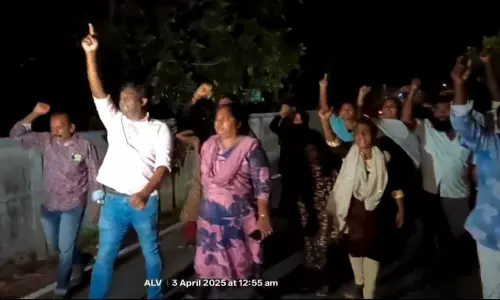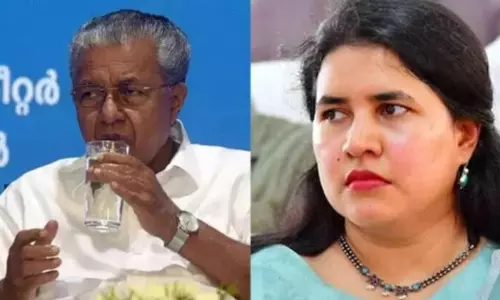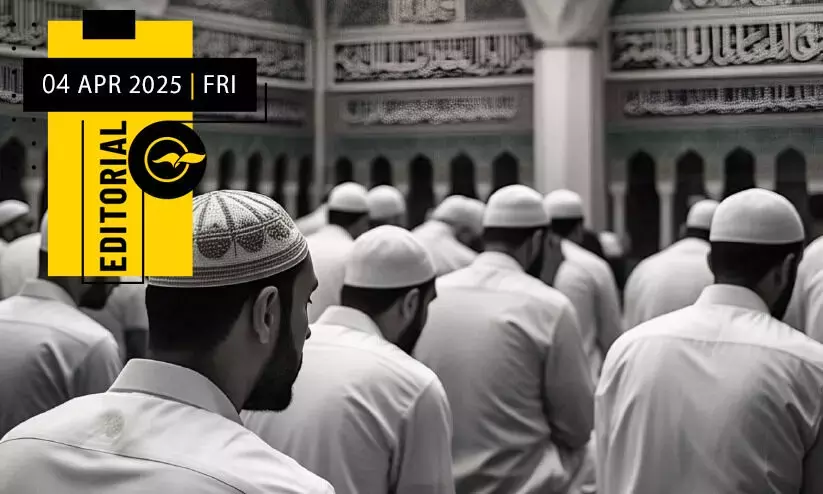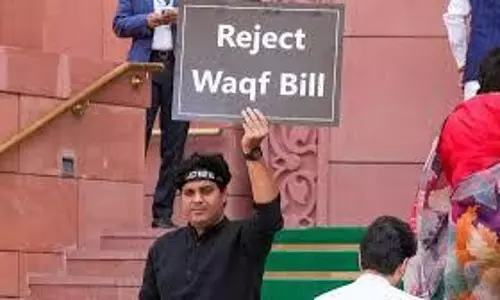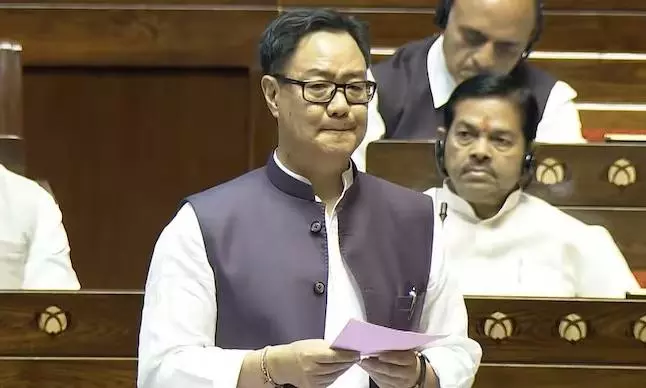
Muslim community unconvinced by assurance that Waqf properties are for Muslims alone
text_fieldsThe contentious Waqf (Amendment) Bill, 2025, which has been passed in the Lok Sabha, has been defended by Union Minority Affairs Minister Kiren Rijiju, who asserted that it does not infringe upon the rights of Muslims over waqf properties and involves no interference by non-Muslims, despite the proposal to include non-Muslims in the board.
However, the bill, introduced by the right-wing party, has been perceived by the community as an attempt to decimate it, with the intention of denigrating Muslims as second-class citizens.
The Waqf (Amendment) Bill, 2025, was tabled in the Rajya Sabha a day after it was passed in the Lok Sabha following a 12-hour debate, where it secured 288 votes in favour and 232 votes against.
The bill, presented by Union Minority Affairs Minister Kiren Rijiju, has sparked intense criticism across the country, with opposition parties alleging that it undermines the rights of the Muslim community and facilitates government intervention in Waqf affairs.
Despite reassurances from the government that the bill solely focuses on property management, opposition leaders have accused it of being politically motivated and aimed at consolidating a communal agenda.
The bill introduces several key changes, including the provision allowing a non-Muslim to become the Chief Executive Officer of the Waqf board and mandating the appointment of at least two non-Muslim members by state governments.
Additionally, it grants the District Collector authority to determine whether a disputed property belongs to Waqf or the government, removes the concept of “Waqf by user,” and requires that every Waqf property be registered in a central database within six months of the law’s commencement.
Another controversial amendment is the removal of the tribunal’s exclusive authority to deliver final rulings, which has led to concerns about prolonged legal disputes and potential government overreach.
In response to allegations of inadequate consultation, the government has maintained that extensive discussions were conducted before introducing the bill, with 284 organisations and over one crore individuals submitting their views. The formation of a Joint Parliamentary Committee (JPC), comprising members from both Houses, was cited as evidence of the government’s commitment to transparency.
However, opposition parties have dismissed these claims, arguing that the consultations were insufficient and that the bill’s provisions disregard historical precedents governing Waqf properties.
During the Rajya Sabha proceedings, the government asserted that the bill includes a Right to Appeal, which allows individuals to challenge tribunal decisions in court. However, opposition leaders have countered that this provision remains ambiguous, raising concerns over legal recourse for affected parties.
The debate also highlighted the contentious issue of civil suits related to Waqf property, with the opposition pointing out that legal challenges had persisted despite a 2013 amendment restricting such cases.
The bill’s passage has triggered widespread protests, with opposition parties accusing the government of orchestrating a misinformation campaign to justify the amendments. They contend that properties historically classified as Waqf have been in continuous use and should not require additional proof to retain their status.
Opposition leaders have warned that the amendments could exacerbate communal tensions, alleging that the government is using the bill to further its political objectives rather than addressing genuine administrative concerns.
Protests have also taken place outside Parliament, with the Dravida Munnetra Kazhagam (DMK) staging a demonstration inside the premises. DMK legislators wore black shirts in both Parliament and the Tamil Nadu Assembly to express their dissent, linking their protest to broader concerns over the government’s handling of minority rights.




